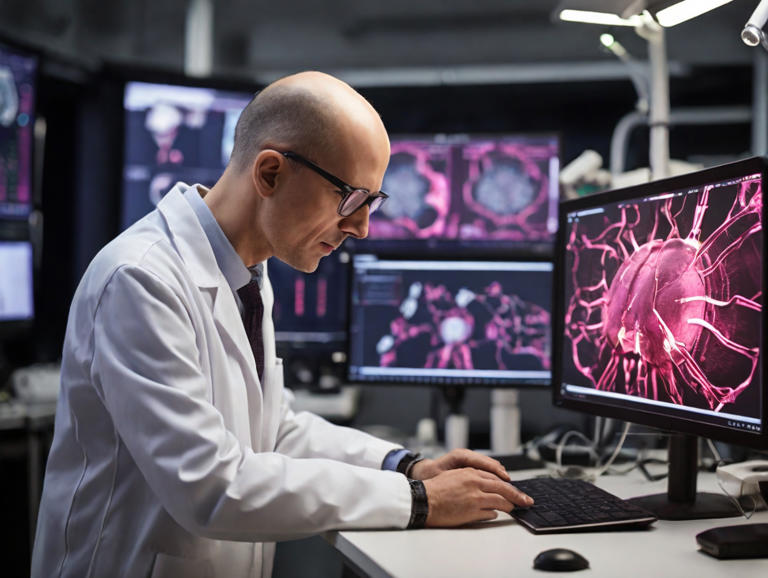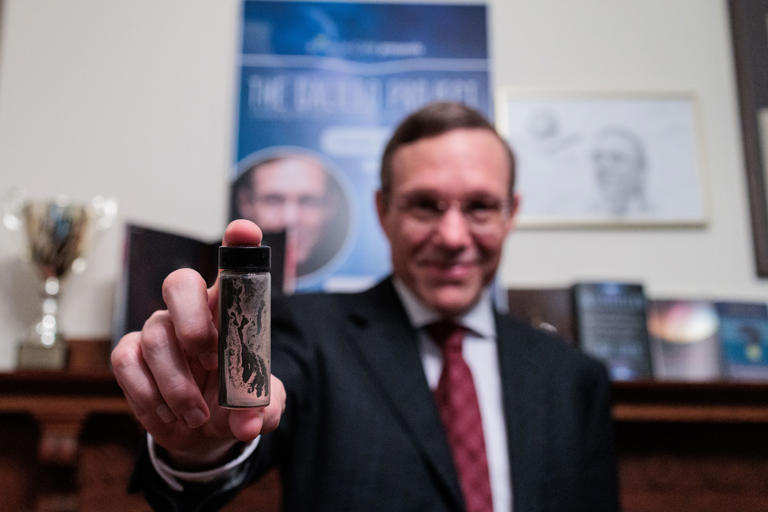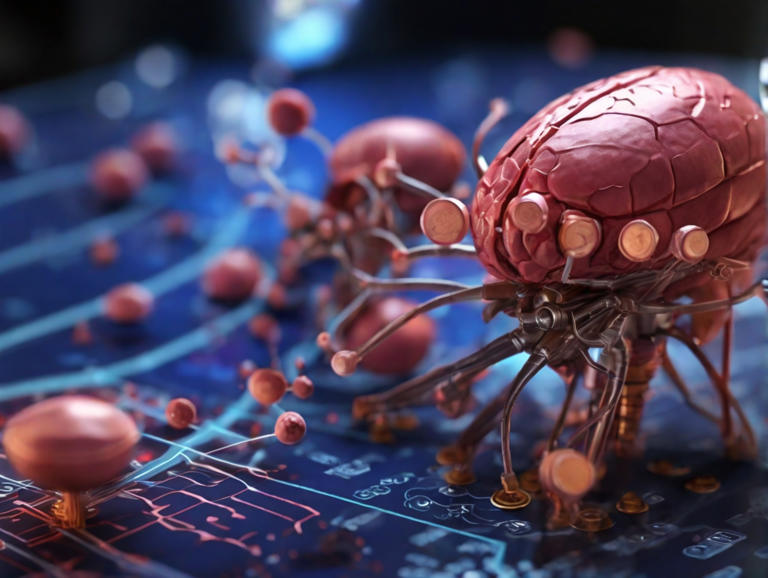AI Breakthrough: London Scientists Unveil Virtual Biopsy Revolution

In a historic breakthrough, scientists at London’s Imperial College have introduced a game-changing technology known as the world’s first “virtual biopsy.” This cutting-edge innovation utilizes Artificial Intelligence (AI) to diagnose lung cancer with unparalleled precision, marking a monumental leap forward in cancer diagnosis and treatment.
Pioneering the forefront of AI technology, researchers at Imperial College spearheaded a study employing an AI tool to predict the progression of lung cancer in hundreds of patients. This groundbreaking approach, termed tissue-metabolomic-radiomic-CT (TMR-CT), merges data from CT scans with metabolic profiling, providing intricate insights into the chemistry of tumor cells and their evolutionary path.
By scrutinizing this extensive dataset, the AI model adeptly categorizes lung cancer types and furnishes reliable prognostic details, surpassing conventional diagnostic methods like CT scans and clinical assessments.
Collaborating with University Hospital Reina Sofia in Córdoba, Spain, and healthcare institutions in the UK, the study showcased the effectiveness and dependability of TMR-CT technology. Initial trials involving 48 lung cancer patients yielded promising results, leading to further testing on a larger cohort of 723 patients. The findings unveiled the AI-based approach’s accuracy in classifying lung cancer and providing dependable predictions about patient outcomes, outperforming traditional diagnostic techniques.
This breakthrough holds immense promise for transforming cancer diagnosis and treatment, particularly in the UK, where lung cancer remains the leading cause of cancer-related deaths, claiming around 35,000 lives annually. By enhancing diagnostic accuracy and streamlining treatment decisions, TMR-CT technology offers a beacon of hope for improved patient outcomes.
Professor Eric Aboagye, the senior author from Imperial’s Department of Surgery and Cancer, underlined the transformative potential of the TMR-CT method, especially in high lung cancer prevalence areas like the UK. Leveraging CT scans to delve deeper into tissue and tumor chemical composition, this technology could revolutionize cancer diagnosis and treatment protocols, paving the way for personalized medicine and enhanced patient care.
Marc Boubnovski Martell, the study’s first author and an Imperial PhD candidate, emphasized the significance of the developed system. Integrating CT scans with the chemical makeup of tumors and normal lung tissue enables precise classification of lung cancer types and furnishes reliable predictions about patient outcomes, empowering clinicians to make informed treatment decisions and optimize patient care.
The pioneering efforts of London scientists at Imperial College signify a monumental stride in cancer diagnosis and treatment. By harnessing AI’s power and amalgamating advanced imaging techniques with metabolic profiling, TMR-CT technology offers a non-invasive and dependable alternative to traditional biopsies, potentially revolutionizing the cancer care landscape. With further validation and refinement, this innovative approach holds the promise of enhancing patient outcomes and alleviating the global burden of cancer.
This groundbreaking work not only promises to revolutionize the diagnosis and treatment of lung cancer but also holds potential implications for other challenging-to-biopsy cancers, such as brain, ovarian, and endometrial cancers. By integrating this AI tool into commercial medical imaging scanners, the researchers envision widespread adoption that could transform diagnostic and treatment protocols for a range of cancers.
The significance of this achievement cannot be overstated. With lung cancer accounting for a substantial portion of cancer-related deaths worldwide, any advancement in its diagnosis and treatment has the potential to save countless lives. The TMR-CT technology’s ability to provide accurate and swift predictions about patient outcomes could mean earlier interventions and more targeted therapies, ultimately improving survival rates and quality of life for cancer patients.
Moreover, the non-invasive nature of this virtual biopsy technology offers a significant advantage over traditional biopsy procedures, which can be uncomfortable, invasive, and sometimes inaccessible due to tumor location or patient condition. This accessibility could potentially expand the reach of cancer diagnosis and treatment to underserved populations, ensuring that everyone has access to the care they need.
As the researchers continue to validate and refine this innovative approach, the future of cancer care looks increasingly promising. By leveraging the power of AI and advanced imaging techniques, we are entering a new era where personalized medicine and improved patient outcomes are within reach. The journey towards conquering cancer may still be long, but with each breakthrough like the TMR-CT technology, we are inching closer to that goal.
In summary, London scientists at Imperial College have achieved a monumental feat with the introduction of the world’s first virtual biopsy technology. By harnessing AI and advanced imaging techniques, they have paved the way for a new era in cancer diagnosis and treatment, offering hope to patients worldwide. With further research and development, this groundbreaking innovation has the potential to transform the landscape of cancer care and save countless lives.





